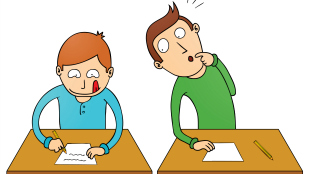 ISTOCK, ZETWEThe frequency of plagiarism among scientists has been tough the pin down; previous estimates have ranged from 0.15 percent of published papers to 11 percent, according to a Daniele Fanelli of the University of Montreal and Vanja Pupovac of the University of Rijeka in Croatia. A recent meta-analysis of plagiarism survey data coauthored by the duo puts the proportion of scientists who have witnessed plagiarism at about 30 percent; 2 percent of all scientists surveyed admitted to having done it themselves.
ISTOCK, ZETWEThe frequency of plagiarism among scientists has been tough the pin down; previous estimates have ranged from 0.15 percent of published papers to 11 percent, according to a Daniele Fanelli of the University of Montreal and Vanja Pupovac of the University of Rijeka in Croatia. A recent meta-analysis of plagiarism survey data coauthored by the duo puts the proportion of scientists who have witnessed plagiarism at about 30 percent; 2 percent of all scientists surveyed admitted to having done it themselves.
“Whilst non-self reports are likely to over-estimate the prevalence of misconduct, self-reports on sensitive topics like scientific misconduct are likely to underestimate it, because of social desirability and related effects,” the authors wrote in a Science and Engineering Ethics paper published last week (October 29). “Therefore, the true average proportion of scientists who at least once knowingly took ideas or text from a colleague without giving them appropriate credit is likely to lie somewhere between observed self-and non-self admission rates.”
Fanelli and Pupovac gathered data from 17 surveys involving thousands of scientists; 11 of the surveys included responses from scientists about whether they observed others committing plagiarism, while seven surveys asked scientists whether they themselves had plagiarized. Plagiarism, whether self-reported or committed by others, correlated ...





















